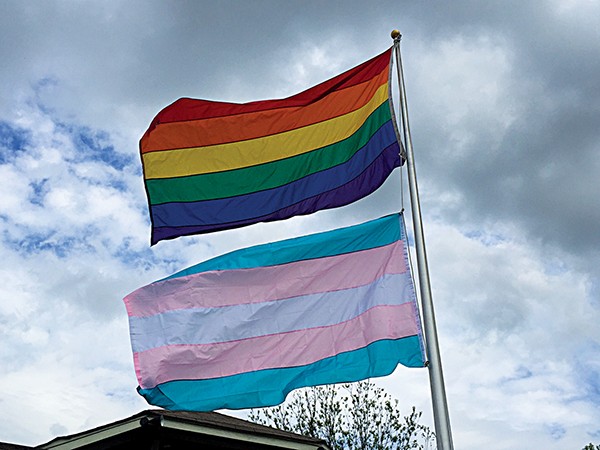The Caravan of Hope, a mobile service that provides pro bono legal services to LGBTQ+ people in rural and underserved areas, will be heading to Dru’s Place, located at 1474 Madison Avenue, on June 14th. The service will be available from 9 a.m.-3 p.m.
According to Caravan of Hope, they will offer advice and legal services on estate planning, name changes, uncontested divorces, adoptions, and general legal questions.
Angela D. Giampolo, of Giampolo Law Group and founder of Caravan of Hope, said the idea is to provide a safe place and to “fill a hole,” where LGBTQ+ folks could reach out for counsel on all of their legal issues, and not just the ones that deal with being LGBTQ+.
Giampolo said participants will be able to confidentially come on the caravan (an RV) and receive help on their legal issues with the aid of a local lawyer as well.
“They can just come with their questions ready to go … confidentially speak [to us], and whatever their need is we go from there,” said Giampolo.
Giampolo is a lawyer in Philadelphia, Pennsylvania, a place that she considers “extremely LGBTQ friendly.” However, after the 2016 election, she said she still got direct messages from LGBTQ+ people who expressed fear about their rights and protection. With that, she wondered what LGBTQ+ people in Alabama, Arkansas, and Tennessee — which she described as a “a hell” — must feel.
“The Caravan of Hope seeks to alleviate the burdens and stress experienced by the most vulnerable of us in the LGBTQ+ community and ensure that people living in rural communities have access to the resources they need to thrive,” said the organization.
“The sad reality however is that LGBTQ+ individuals in the 29 states without state laws that prohibit discrimination on the basis of sexual orientation consistently see greater disparities than in the 21 states with such laws, including less social acceptance and greater economic vulnerability, especially among African-American LGBT and individuals transgender people,” they said.
According to Caravan of Hope, “55 percent of the LGBTQ+ population in the United States live in the Midwest or the South, where they lack legal employment protections, earn less than $24,000 a year on average, and are less capable of affording food or healthcare.”
Six years later, the Caravan of Hope set forward on its “maiden voyage.” Giampolo said with the presidential election coming up, this is a foundational year of “setting the groundwork for following years.”
A report entitled “LGBTQ Tennesseans: A Report of the 2021 Southern LGBTQ Experiences Survey,” released by the Campaign for Southern Equality in January 2023, stated that “LGBTQ Tennesseans face an unsupportive legal system and a hostile political climate that results in disproportionate disadvantage across some of our most central social institutions, including work, family, education, and healthcare.”
The report also stated that there is an absence of laws that protect the LGBTQ+ community, “such as state and local non-discrimination policies.”
Giampolo said that not only do LGBTQ+ people face legal issues in things such as name changing services, but also in other legal areas such as estate planning.
“So many queer folks are disowned or mistreated by their family,” Giampolo said. “Is that who you want [to have] power of attorney over you if you’re in a car accident?”
She said that while “straight, cis-gendered folks,” get service for things such as adoption services, divorces, and other things as well, the way that LGBTQ+ people use these services is much more fundamental to their basic needs.

